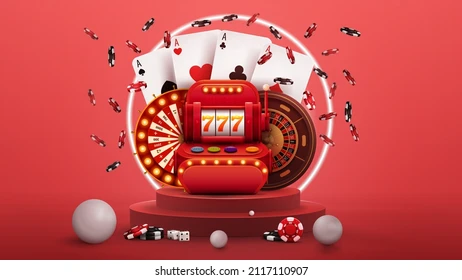Slot rates are an essential concept in various industries, particularly in entertainment, transportation, manufacturing, and advertising. These rates influence how resources are allocated, schedules are planned, and revenues are generated. For businesses and individuals alike, 슬롯 요율 뜻알기 can be the key to optimizing operations, maximizing profits, and improving efficiency.
In this article, we’ll dive deep into what slot rates are, their significance, how they are calculated, and their applications across different sectors.
What Are Slot Rates?
Slot rates refer to the pricing or value assigned to a specific time slot or unit of availability within a system. The term is commonly used to describe the cost or allocation of limited resources, such as:
- Airplane landing slots at airports
- Advertising time slots on television or digital platforms
- Time blocks in manufacturing production schedules
- Spaces in gaming machines or online gaming platforms
Slot rates are determined by factors like demand, resource scarcity, competition, and the potential revenue that can be generated during the given slot.
Why Are Slot Rates Important?
1. Optimizing Resource Utilization
By assigning rates to slots, businesses can ensure that valuable resources like time, space, or equipment are used efficiently. This prevents wastage and ensures maximum productivity.
2. Revenue Maximization
Slot rates allow businesses to capitalize on high-demand periods. For instance, prime-time TV ad slots are priced higher because they attract larger audiences, leading to better returns for advertisers.
3. Fair Allocation
Slot rates help in equitable distribution, especially in competitive industries. For example, airports use slot pricing to manage traffic and ensure fairness among airlines vying for landing and takeoff times.
4. Customer Insights
The analysis of slot bookings and rates provides valuable insights into consumer behavior and preferences, enabling businesses to tailor their offerings accordingly.
How Are Slot Rates Calculated?
The calculation of slot rates varies depending on the industry and specific use case. However, the following factors commonly influence slot pricing:
1. Demand and Supply
When demand for a slot is high, rates tend to increase, and vice versa. For instance, advertising slots during the Super Bowl are exorbitantly priced due to massive viewer interest.
2. Time of Day or Seasonality
Certain times of the day, week, or year have higher demand. Morning slots for gyms or prime-time slots for broadcasters are typically priced higher.
3. Resource Scarcity
The availability of the resource also impacts rates. Limited slots in a production schedule or at a busy airport terminal can lead to higher pricing.
4. Historical Data
Analyzing past performance and demand trends helps in setting competitive yet profitable slot rates.
5. Competitor Pricing
In industries with multiple players, competitive pricing strategies can influence how slot rates are determined.
Applications of Slot Rates in Different Sectors
1. Aviation Industry
Airports use slot rates to manage runway availability for takeoffs and landings. Airlines bid for these slots, especially during peak hours, to maximize passenger convenience and profitability.
2. Advertising
In advertising, slot rates determine the cost of placing ads during specific time periods. For example:
- Television: Prime-time slots are more expensive than late-night or early-morning slots.
- Digital Platforms: Ad rates on platforms like YouTube or Instagram vary depending on user engagement and traffic at certain times.
3. Gaming Industry
In slot machines or online gaming, slot rates may refer to the payout rates or the allocation of gaming times in competitive eSports.
4. Manufacturing
Production slots in factories are allocated based on slot rates, ensuring that high-priority orders or high-paying clients receive timely service.
5. Event Planning and Entertainment
Venue owners and event organizers use slot rates to price time blocks for concerts, conferences, or theater performances. Prime weekend evening slots are generally pricier than weekday mornings.
